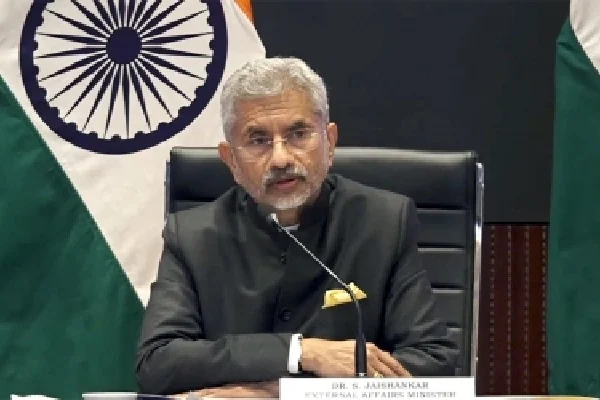India’s External Affairs Minister, S Jaishankar, delivered a significant address at the United Nations General Assembly (UNGA), outlining India’s aspirations to become a “great power” and emphasizing its commitment to global welfare. Jaishankar stated that India’s goals in this pursuit would set it apart from previous rising powers and highlighted its dedication to representing the interests of under-represented nations on the global stage.
In his speech, Jaishankar declared, “The days when a few nations set the agenda and expected others to fall in line are over, as the United Nations itself symbolizes.” This statement underlined India’s position as a nation that would act in the interest of countries that have been historically marginalized in international decision-making processes.
Jaishankar pointed to several instances where India’s rise as a leading power would contribute to global well-being. He highlighted India’s focus on addressing the needs of struggling developing nations within the G20 and its commitment to providing immediate disaster relief. He emphasized that India’s pursuit of becoming a leading power was not driven by self-aggrandizement but by the desire to shoulder greater responsibilities and make significant contributions to the global community.
The foreign minister also showcased India’s domestic achievements, such as poverty reduction, the successful Chandrayaan 3 moon mission, and the development of digital public infrastructure, as evidence of the country’s transformation at home.
However, Jaishankar did not shy away from addressing critical issues, particularly terrorism and national security. He expressed concerns about the use of economic power to divert essential resources from the needy to the wealthy and emphasized that political convenience should not dictate responses to terrorism, extremism, and violence. He called for a consistent and principled approach to these challenges.
Jaishankar also stressed the importance of respecting territorial integrity and non-interference in internal affairs and called for these principles to be consistently applied without cherry-picking. This remark came in the context of India’s diplomatic dispute with Canada, where India accused Canada of allowing political considerations to influence responses to terrorism and extremism.
Highlighting India’s diplomatic achievements, Jaishankar mentioned the successful joint declaration secured at the G20 Summit in New Delhi. He emphasized that recognition and accommodation of different perspectives should not be seen as weaknesses but as strengths in global diplomacy.
Finally, Jaishankar reiterated India’s long-standing call for the reform of international institutions like the United Nations. He emphasized that broad representation was essential for both effectiveness and credibility in these institutions. He cited the example of the African Union’s inclusion in the G20 during the New Delhi Summit as a positive step toward greater inclusivity in global governance.
S Jaishankar’s address at the UN General Assembly outlined India’s unique path to becoming a “great power” and its commitment to acting in the global interest. He addressed critical issues, including terrorism and the need for international reform, underscoring India’s role as a responsible and forward-looking global player.














